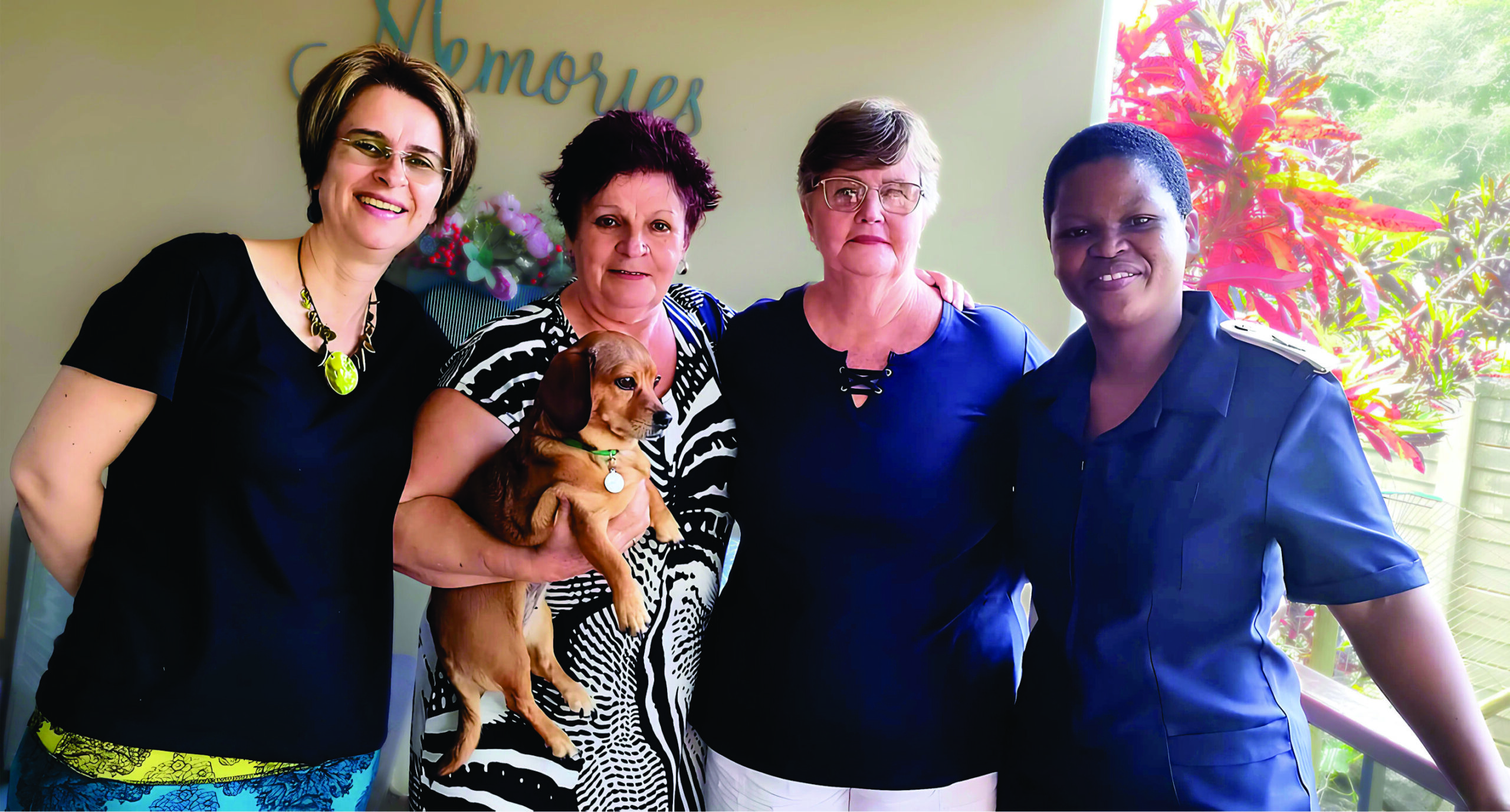Definition of dementia – unlearning the learnt
Most information on dementia deals with the first to middle stages of the disease and not the terminal stage. There is very little explanation given for families to understand the end process and what can take place. I hope this little bit of insight will help you manage this journey you have with your loved one.
The average survival time after diagnosis ranges from three to 12 years. The longest time spent will be in the terminal stage of the disease. Nursing homes are the most common destination for advanced dementia.
Families are the ones who take most of the emotional load of this disease. Coming to terms with the symptoms is very difficult and is not something you expect or even understand. The face of your loved one does not change to a great degree, but their personalities differ, from not recognising you to being aggressive and abusive.
This is a progressive and incurable illness. A loved one with advanced dementia – in the final years of life – is characterised by a trajectory of severe disabilities which include:
Profound memory loss (e.g. inability to recognise family members);
Minimal verbal abilities;
The inability to ambulate independently and
The inability to perform activities of daily living.
Loss of control of the bladder and faeces.
Planning ahead
Timeous care planning is a cornerstone for the care of patients with advanced dementia. Providers of care should also counsel family members about the basic decision-making process, which is first to consider any written or oral directives previously expressed. The family must then choose treatment options that align with these. This is to ensure that plans are in place before acute problems arise and also to avoid treatments that are against the patient’s wishes.
Once a goal of care is established, treatment options that best align with that goal should be considered.
Prior to this time the family should ensure that an administrator / curator has the ‘Power of Attorney’ over the financial affairs. It is surprising how quickly a signature, PIN number etc. can be forgotten. To obtain this after the fact will be a lengthy and expensive affair. This expensive process is called a Curator bonis et ad litem.
A very important ‘must do’ is to ensure that all financial matters are in the hands of an administrator / curator or family member who will take responsibility for administering the finances.
NORMAL SYMPTOMS FOR THE PROGRESSION OF DEMENTIA
There are many symptoms that go hand in hand with dementia. The signs and symptoms of dementia will differ from person to person. It is a good idea to Google, listen to YouTube or read as much as possible on the subject of dementia. The more you do, the more educated you become. It remains important to understand, though, that the dementing process differs from the one person to the next.
The rapidness and the progress of this disease differs from the one person to the next. Some deteriorate very quickly and others may take years. Some will deteriorate in certain areas that may not always be seen physically, while others may have cognitive, intellectual or behavioural problems.
TIAs or Transient Ischemic Attacks – small bleeds in the brain – may happen any time.
Walking
A large percentage of residents lose the ability to walk unaided, usually experiencing:
- A loss of balance;
- Perhaps a slight tremor (intention tremor or Parkinson’s);
- Their gait becomes a shuffle;
- Unsteadiness due to weakness of the legs;
- Disorientation and not knowing where they are going;
- Perception – walking into doorways;
- Sitting on the edge of a chair;
- Not recognising open for closed;
- Having difficulty in understanding the opening of a door
Eating and swallowing
The use of utensils becomes unknown, the art of eating is unfamiliar. With the loss of sight and perception, it is difficult to judge the plate to mouth action. Difficult to see what is on the plate and how to get the food onto a utensil, as well as cutting and balancing of food on a utensil.
Once the food is in the mouth:
- Chewing and the instinct to swallow may break down;
- Not knowing what to do with the food in the mouth;
- Oral dysphagia (e.g. pocketing food in the cheek);
- Pharyngeal dysphagia (choking/coughing) may be caused by food going down the windpipe.
MANAGING PERSONALITY AND BEHAVIOURAL CHANGES IN ADVANCED DEMENTIA
Common personality/behavioural changes: All the changes that have slowly taken place over the years, are now amplified.
- Anger and aggression – Lashing out, biting, hitting are normal.
- Using strong verbal abuse, muttering to themselves/dysphagia language;
- No interest in anything;
- Hiding things, no memory retention at all;
- Paranoia/ hallucinations;
- Wandering, falling, loss of balance and mobility;
- Unusual sexual behaviour;
- Physical abuse;
- Complete lack of understanding instructions ;
- Frustration and
Sleeping / dozing most of the day
Eyes shut / not responding.
Audio / deafness
Talking and mumbling.
Pearl moments
“There will be times of lucidity that come and go with no warning. These may last from minutes to hours. It can give false hope to loved ones. Unfortunately, each such special moment must be cherished and enjoyed. This can be very emotional on both sides. As the trajectory tumbles forward these moments become less and less.”
Sr. Val Ball – Professional Nursing Practitioner
Edited and supported by: Dr Lennart Eriksson- M.B.Ch.B. (Pret) F.C.Psych (SA)

Image: Sr Val Ball, third from left, and her incredible Vales team.
There are many other care considerations and areas of a life with dementia, that are outlined in Sr. Ball’s booklet available to our readers by contacting Sr. Ball below.
To receive the comprehensive booklet, contact Sr. Val Ball

